Martinique

I did not get much sleep last night, nor did probably most of the rest of the passengers. Our ship was hit by extremely strong tradewinds and it rocked half the night accompanied by creaking noises––a bit scary. The winds were still blowing when we approached Martinique. We passed by Diamond Rock on our way to the harbor at Fort–de–France, Martinique.

Martinique
Martinique
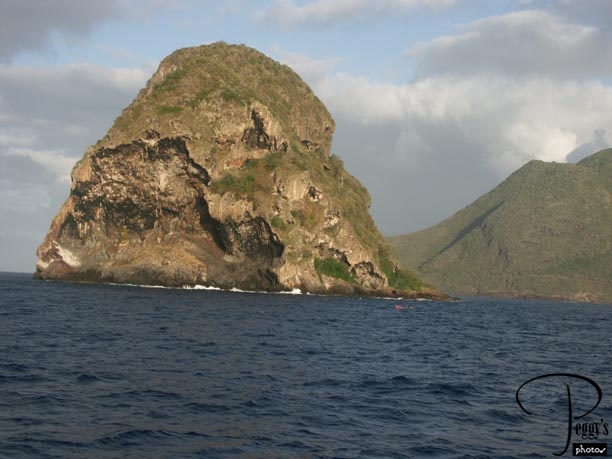
Close–up of Diamond Rock. In the early 1800s, the British used this 600–foot–high rock as a bastion. I cannot picture how they were even able to climb up on it.

Martinique
Martinique
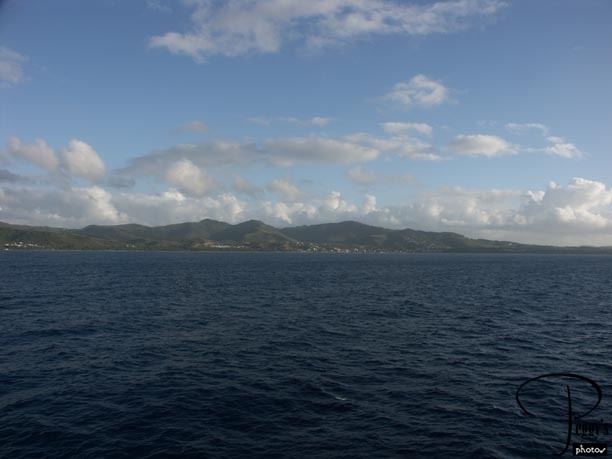
Sailing along the coastline of Martinique.

Martinique
Martinique
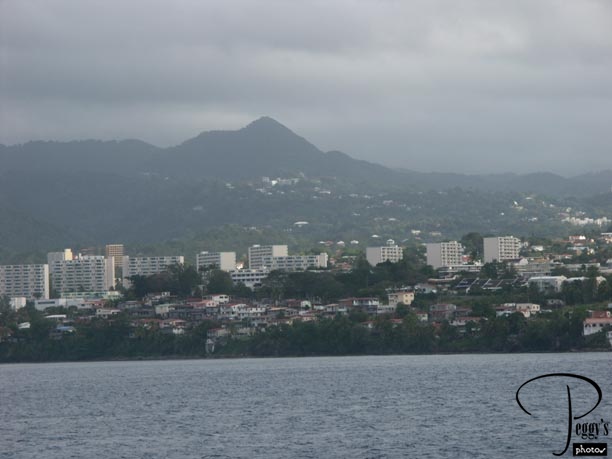
Close–up of the coastline, with a view of the very modern high–rises here.

Martinique
Martinique
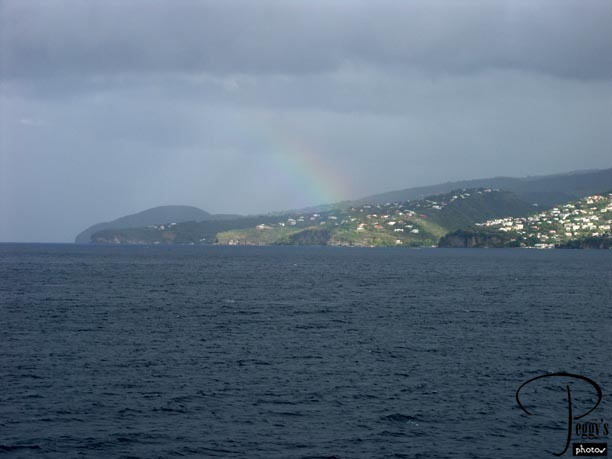
Coast line to the left with a rainbow.

Martinique
Martinique
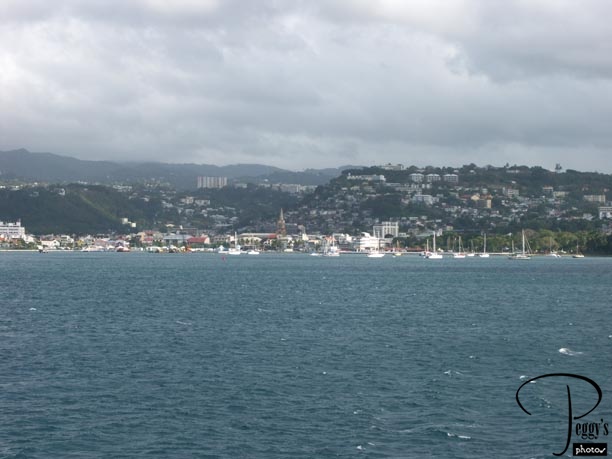
Coming into Fort–de–France, the capital of Martinique.

Martinique
Martinique
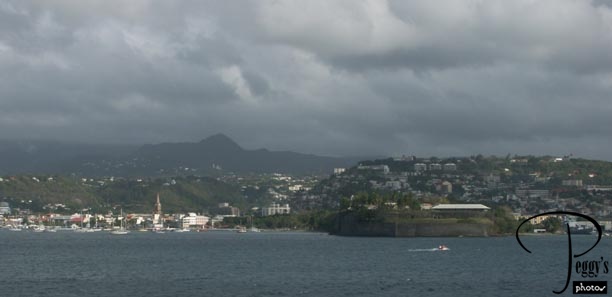
Fort Saint–Louis in on the left. We were going to dock to the right of it.

Martinique
Martinique
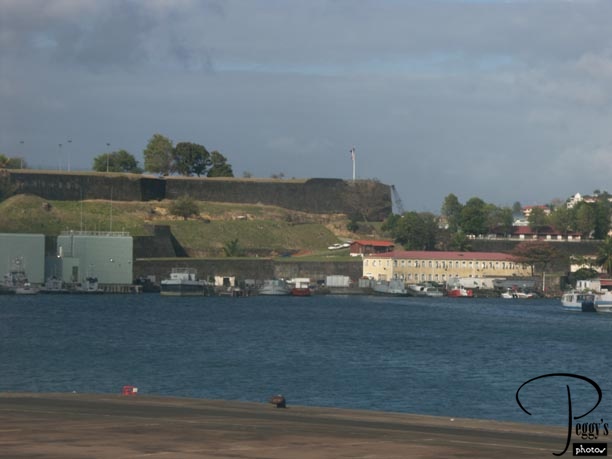
View of Fort St. Louis from where we docked.

Martinique
Martinique
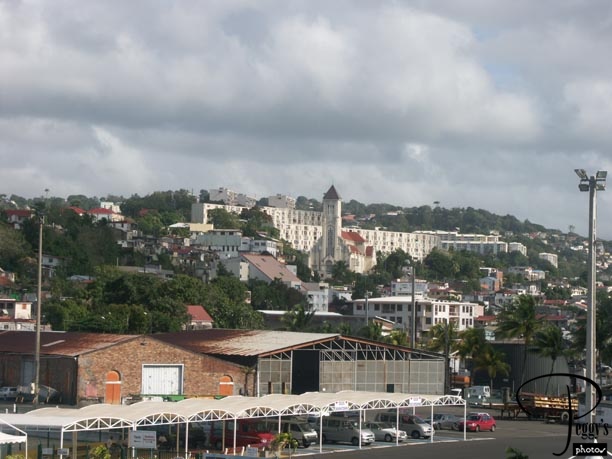
View of Martinique from our ship.

Martinique
Martinique
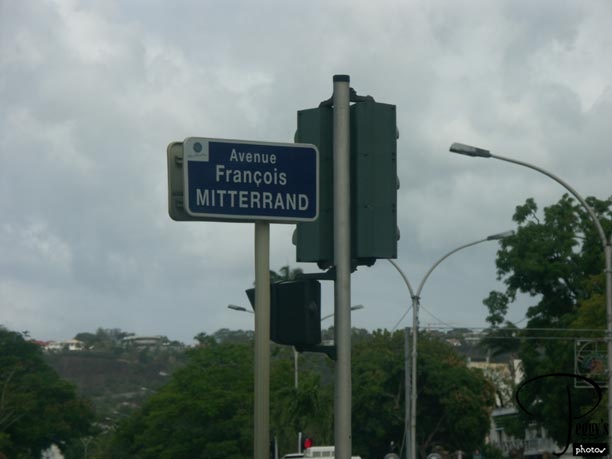
Avenue Francois Mitterrand. We must be in France! Actually we are, as Martinique is an “overseas department of France,” colonized by France in 1635. It is not an independent country. Hence, the currency of France, the euro, is used here. Also, French is spoken here, although Creole Patois in the official language spoken.

Martinique
Martinique
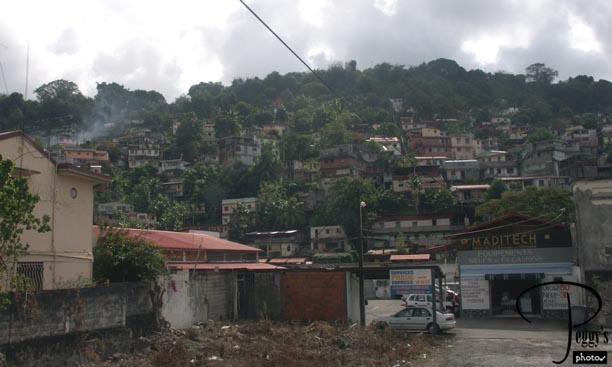
The day tours offered through our ship today were “Tree Swinging”––a Mangofil Adventure Park, and “Canyoning,” in the heart of the rainforest. Neither appealed to me. I wanted to see the Sacre–Coeur de Balata Cathedral as my travel guide said that it is a replica of the famous Sacre–Coeur in Paris. I arranged for a one–hour taxi ride up to Sacre–Coeur and then a dropoff at Fort–de–France––in Martinique, you pay by the hour for a taxi and at high rates. Better to rent a car if you want to see the island. Driving is on the right side of the road. Photo taken while leaving the dock area.

Martinique
Martinique
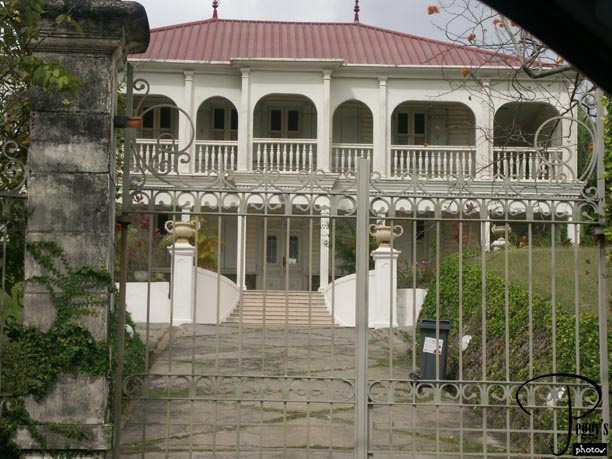
It was an informative trip up the hill to Sacre–Coeur––the roads were well paved and the housing along the route was middle class to luxurious. One of the houses along the route.

Martinique
Martinique
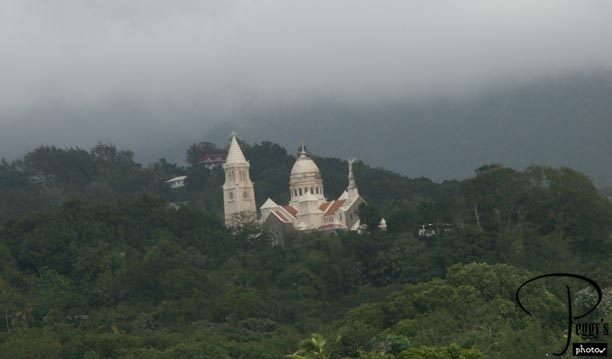
Sacre–Coeur from a distance. It overlooks Fort–de–France.

Martinique
Martinique
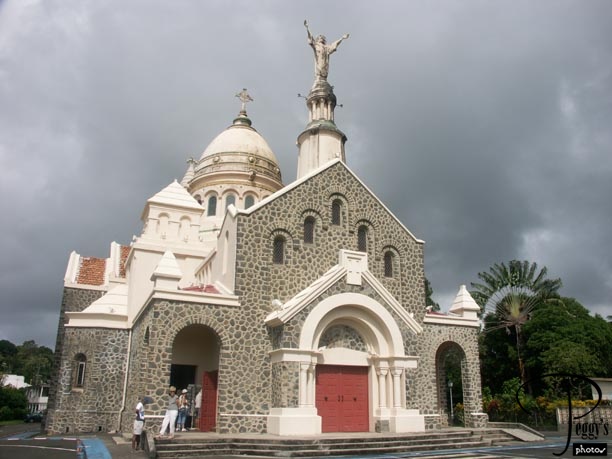
Sacre–Coeur de Balata Cathedral.

Martinique
Martinique
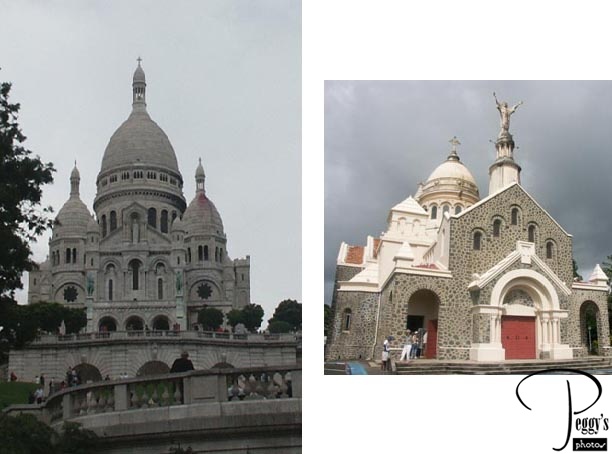
I don’t think that the proper word to describe the Martinique Sacre–Coeur is “replica.” Perhaps it should be something like: “built somewhat in the style of.” Photo: The Paris Sacre–Coeur on the left and the Martinique Sacre–Coeur on the right.

Martinique
Martinique
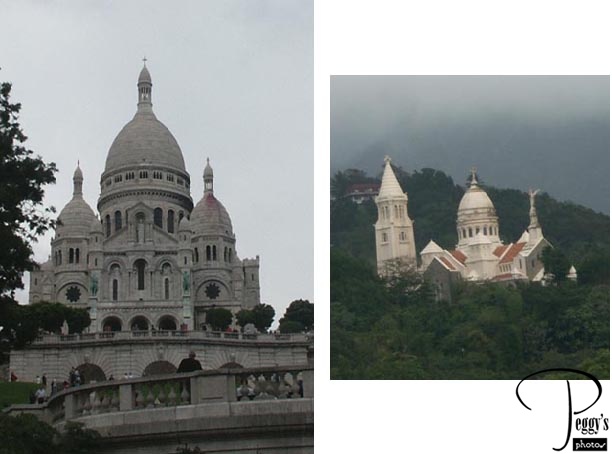
Photo: The Paris Sacre–Coeur on the left and the Martinique Sacre–Coeur at a distance on the right.

Martinique
Martinique
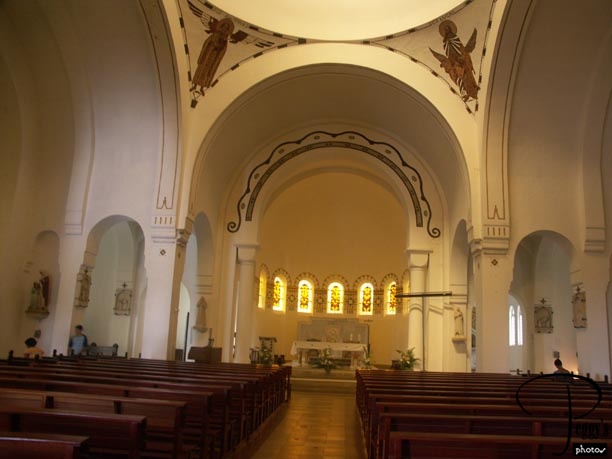
Inside the Martinique Sacre–Coeur. I can’t compare this with any photos I took in France as no photos were allowed to be taken inside the Paris Sacre–Coeur.

Martinique
Martinique
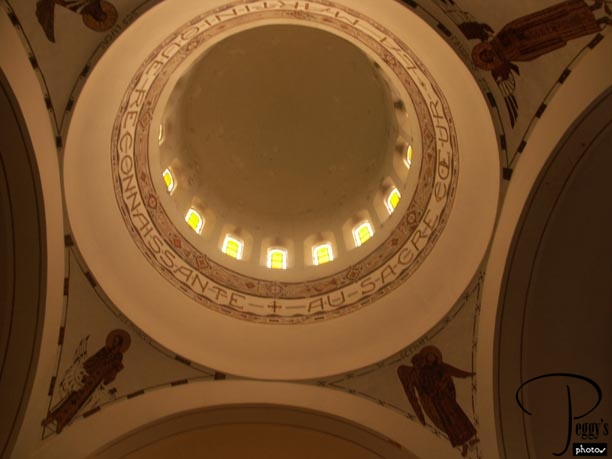
Inside the dome.

Martinique
Martinique
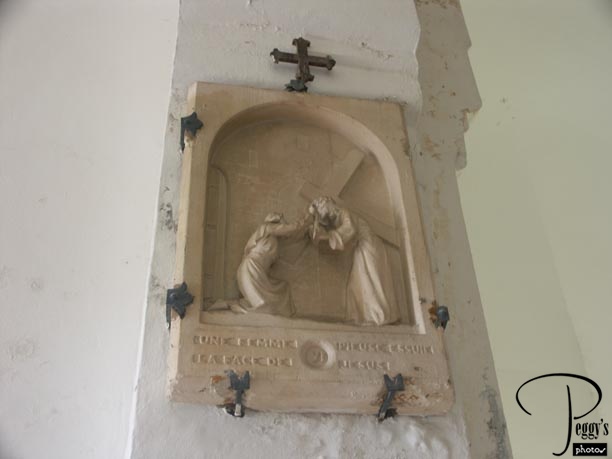
Station of the Cross.

Martinique
Martinique
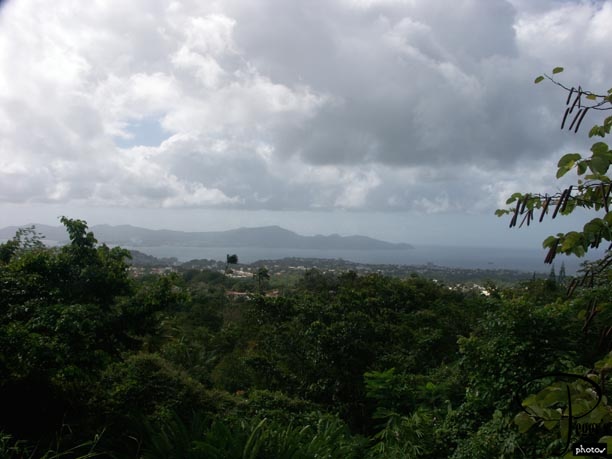
View from the Sacre–Coeur viewpoint. I thought that my driver had driven extremely slowly going up the hill, but he drove even slower going down and I am sure that he was taking a slower route back to Fort–de–France. I knew that I wasn’t going to get back to Fort–de–France within the hour time limit, but I told him that if I didn’t I would just get out of the taxi as I wasn’t going to pay him for another hour . Some other passengers told me that they had gotten a good rate for a taxi sightseeing tour but that their driver had stopped at every souvenir stand that he could find on the route. They had to get tough with him as well and told him that they wouldn’t pay him if he didn’t cease stopping at the stands.

Martinique
Martinique
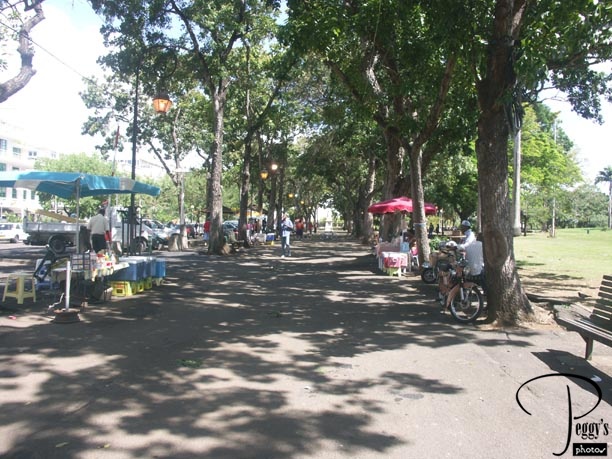
Finally, I was dropped off, somewhat irritated, in Fort–de–France. I walked over to La Savane, a large park that does remind you somewhat of the parks in Paris.

Martinique
Martinique
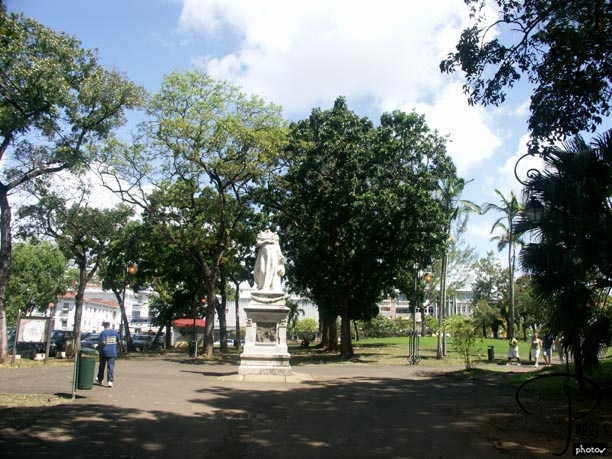
At the end of this tree–lined walkway is a statue of Napoleon’s Empress Josephine, who was born in Trois Ilets, across the bay from Fort–de–France.

Martinique
Martinique
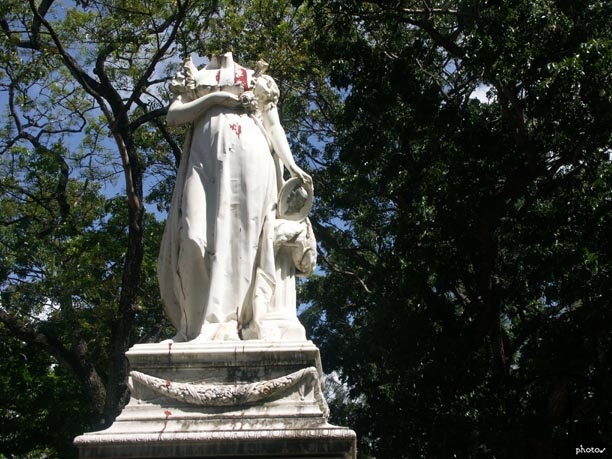
The statue was decapitated in 1991, probably because the people of Martinique thought that Josephine had supported slavery.

Martinique
Martinique
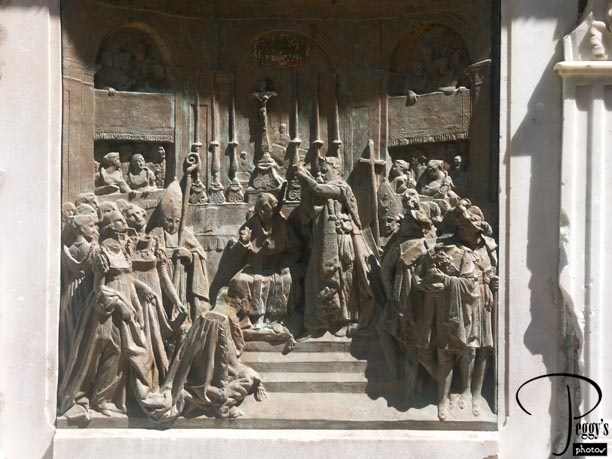
Close–up of the relief underneath the statue.

Martinique
Martinique
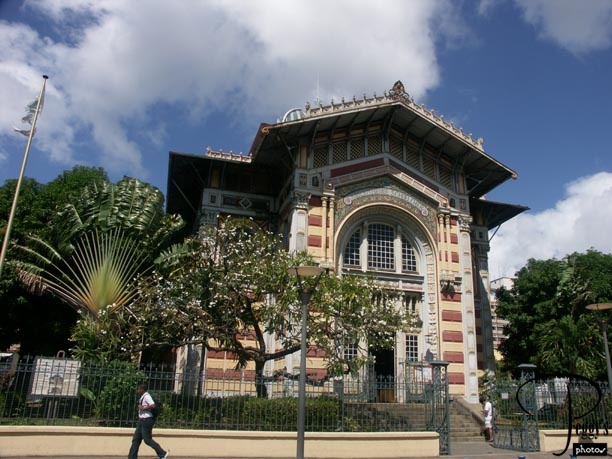
The Bibliotheque Schoelcher across the street from the statue of Josephine. The Romanesque–Byzantine building is from the Paris Exposition of 1889. It was dismantled piece by piece and then shipped to Martinique and reconstructed.

Martinique
Martinique
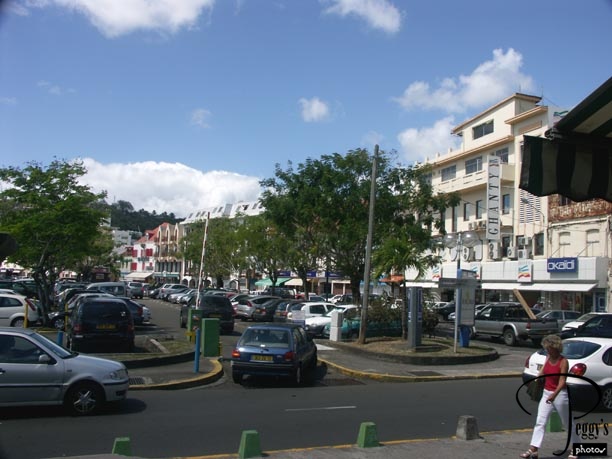
I looked for a place to have lunch and found one near the Bibliotheque Schoelcher that was populated by either French tourists or expatriots. The menu was only in French, so it was a good thing that I remembered some French menu terms from my trip to Paris. I ordered a jambon et fromage sandwich and I had to do it in French as when I said that I wanted a ham and cheese sandwich they just looked at me funny. I also order a Diet Coke, which also got me a funny look, but I remembered that when you are in France you need to order a Coke Light. My jambon et fromage sandwich was exactly like the ones you get in France: a heavenly made baguette and then just a thin slice of ham and a thin slice of cheese. After lunch, I walked over to the street facing the harbor.

Martinique
Martinique
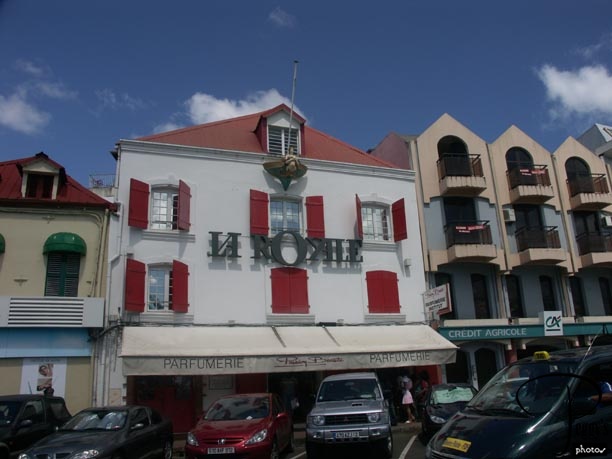
Buildings seen on my walk around Fort–de–France.

Martinique
Martinique
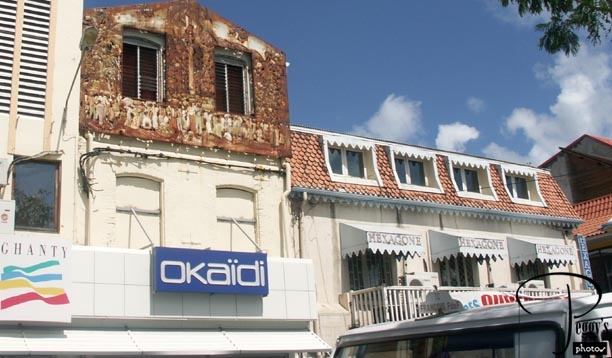
More buildings.

Martinique
Martinique
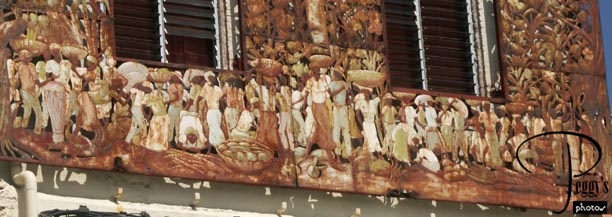
Mural on the top of the brown building in the last photo.

Martinique
Martinique
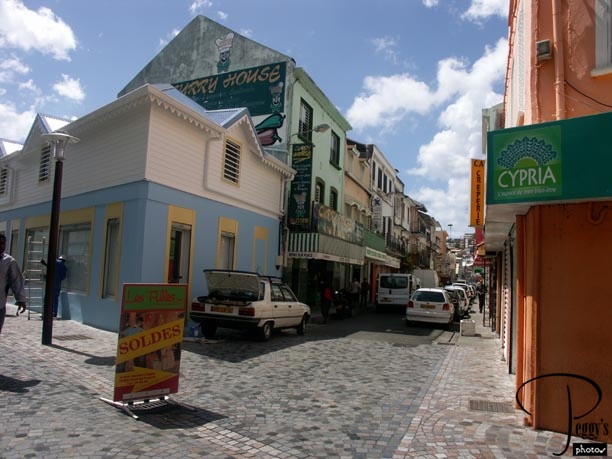
Side street.

Martinique
Martinique
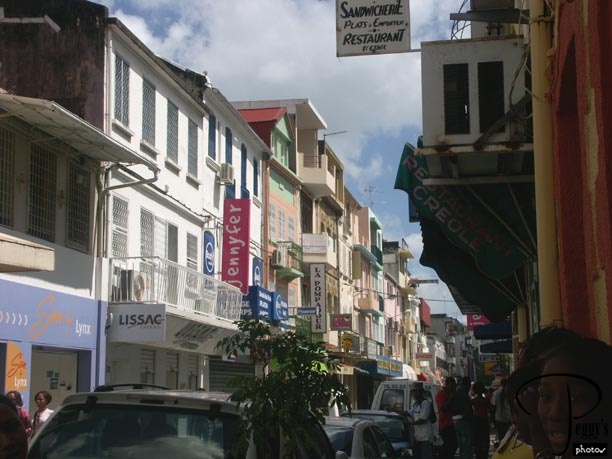
Another side street.

Martinique
Martinique
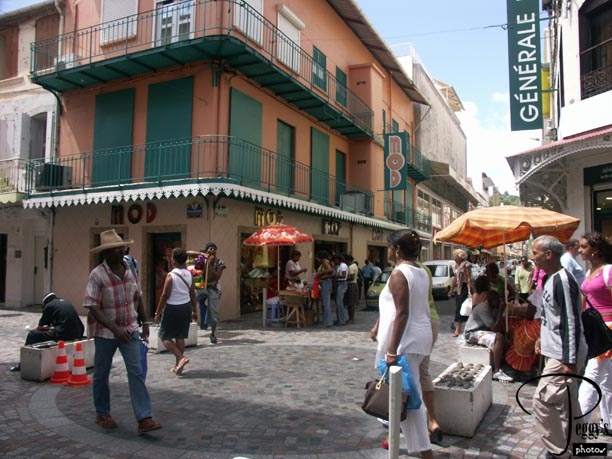
Another street.

Martinique
Martinique
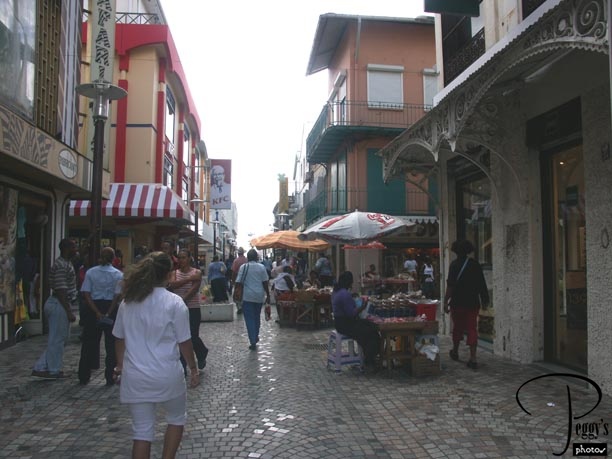
Street scene.

Martinique
Martinique
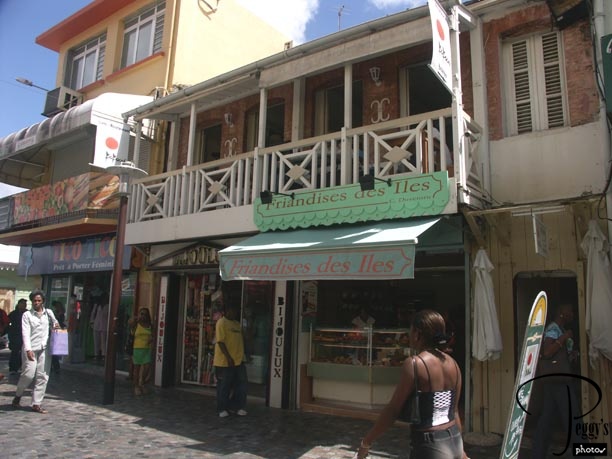
Street scene.

Martinique
Martinique
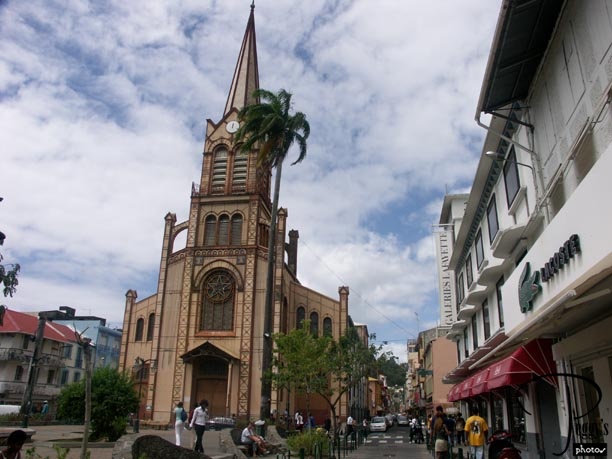
This was my favorite place in Fort–de–France. It was a square with La Cathedrale Saint–Louis, built in 1875, on one of its sides. Its bell tower was built separately in 1895.

Martinique
Martinique
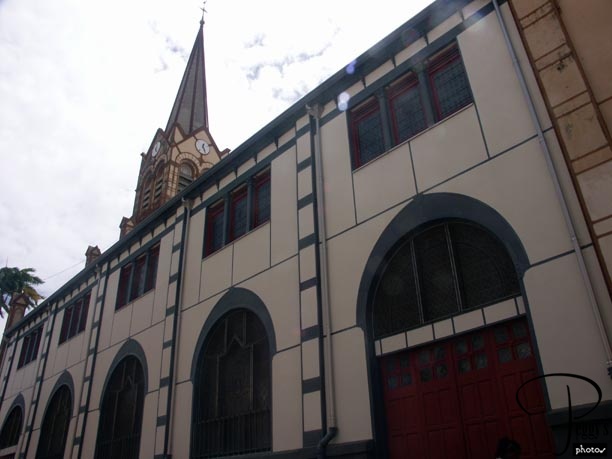
The side of the church.

Martinique
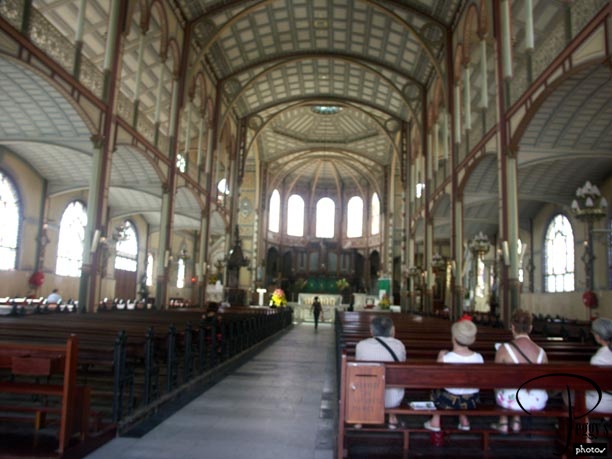
Inside the church. (I had to come back at a later time to take photos inside the church as the church was closed when I first was here.) Some people liken the design of this church to a “Catholic railway station.”

Martinique
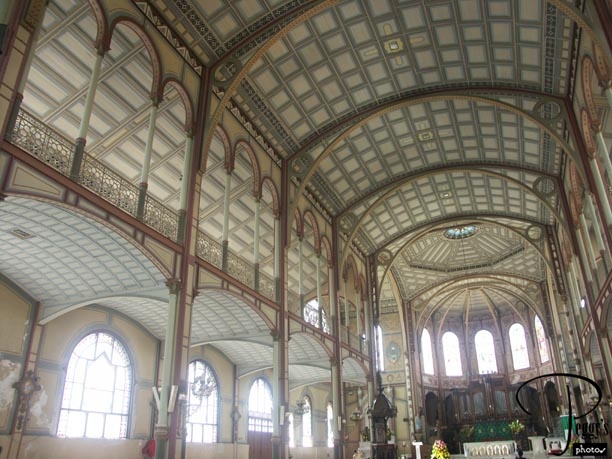
The ceiling of the church.

Martinique
Martinique
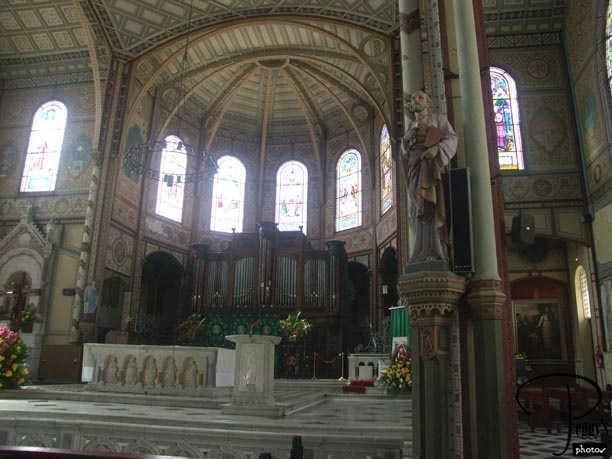
The altar.

Martinique
Martinique
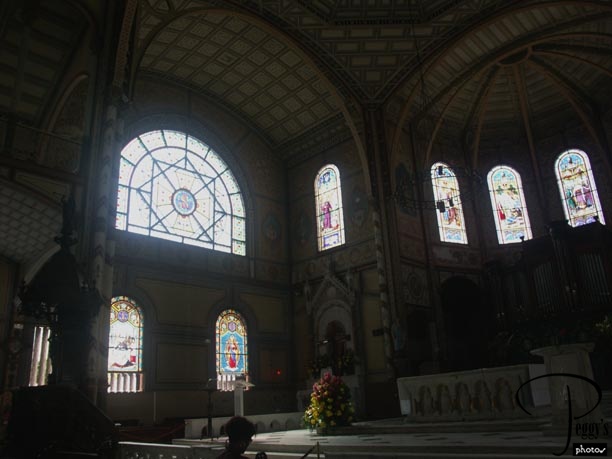
Stained–glass windows.

Martinique
Martinique
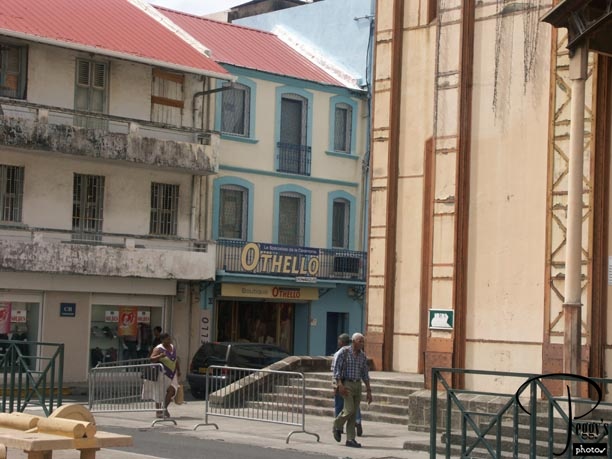
Buildings across the street from the church.

Martinique
Martinique
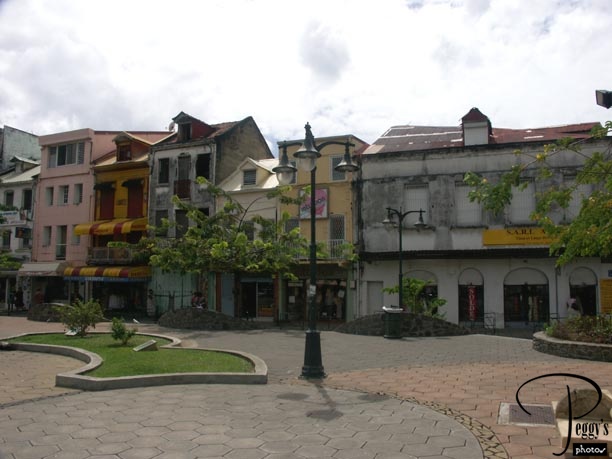
Looking farther along this side of the square.

Martinique
Martinique
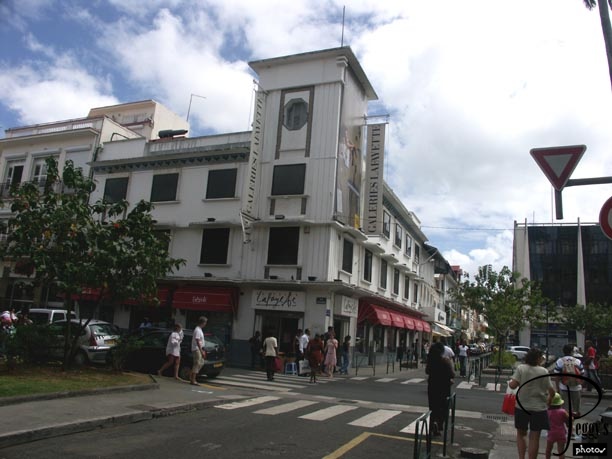
I was very surprised to see the Galeries Lafayette, a department store straight from Paris, across from the church.

Martinique
Martinique
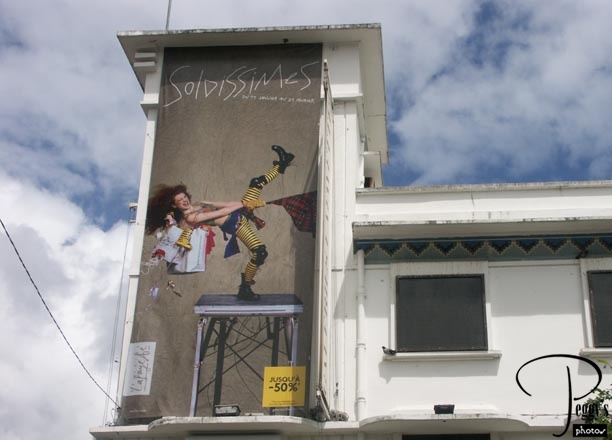
And also surprised to see a very Parisian advertisement on the side of the department store.

Martinique
Martinique
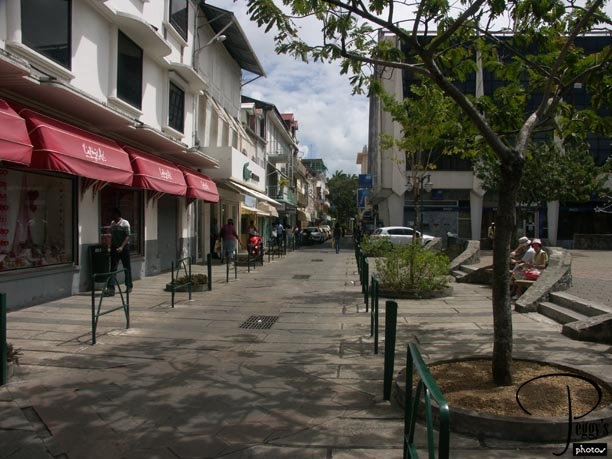
A street off the square.

Martinique
Martinique
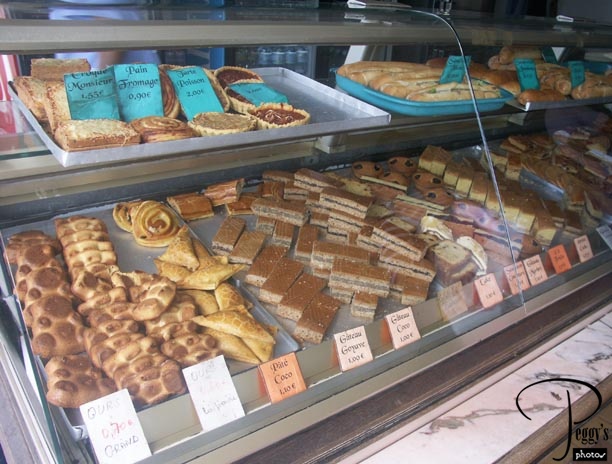
Don’t forget to stop for coffee and pastry at one of the French patisseries. I didn’t forget.

Martinique
Martinique
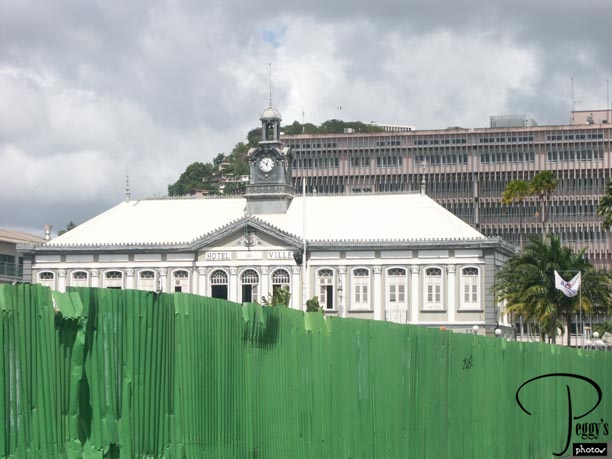
The Hotel de Ville (Town Hall), under reconstruction, at the end of a street.

Martinique
Martinique

Colorful buildings.

Martinique
Martinique
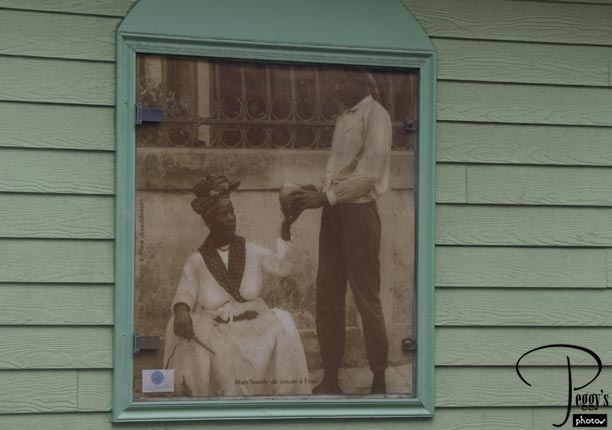
Close–up of photo on the side of one of the buildings.

Martinique
Martinique
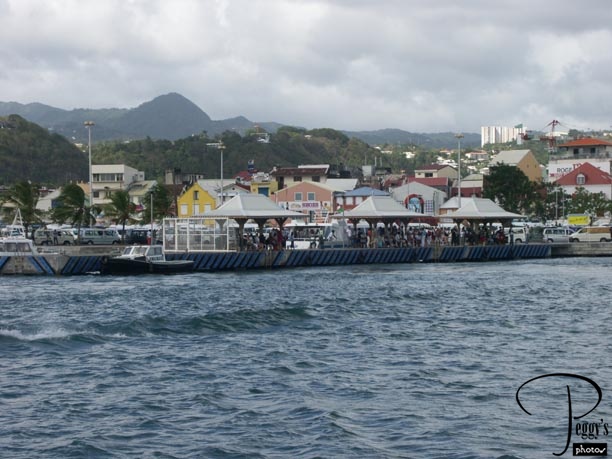
What else to see in Martinique? I decided to take one of the ferries to the other side of the bay. You just walk to the dock and tell the ferry attendant where you want to go. You can go to the beach or across to where some expensive hotels are. I went to see the hotel area.

Martinique
Martinique
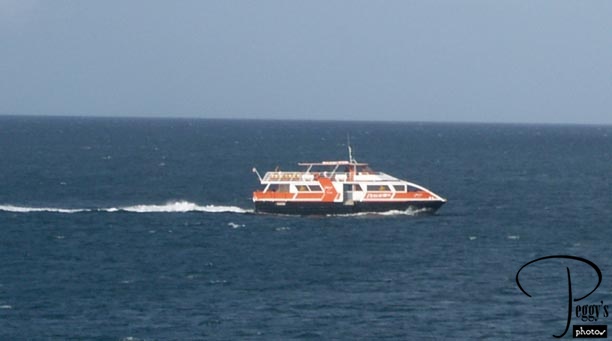
One of the small ferries.

Martinique
Martinique
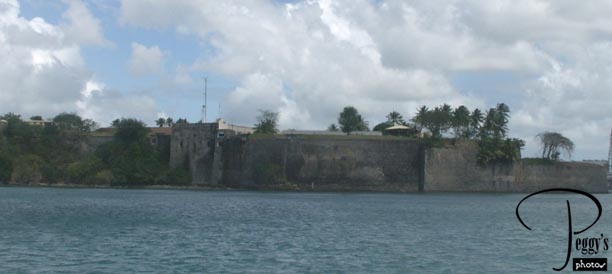
Passing Fort Saint–Louis on the ferry.

Martinique
Martinique
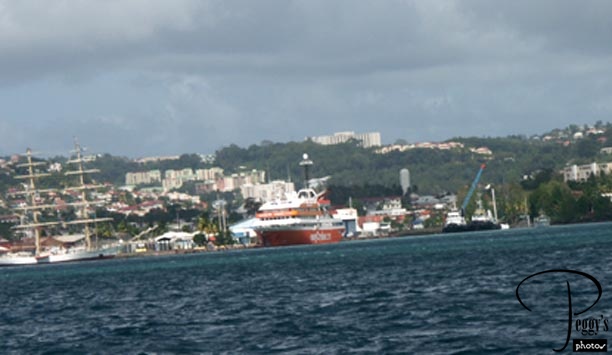
Passing our ship, easyCruise I.

Martinique
Martinique
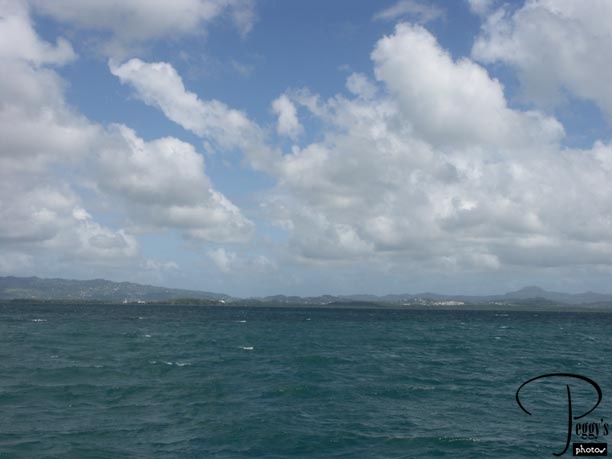
View from the sea. This is still the island of Martinique––the island wraps around a bay.

Martinique
Martinique
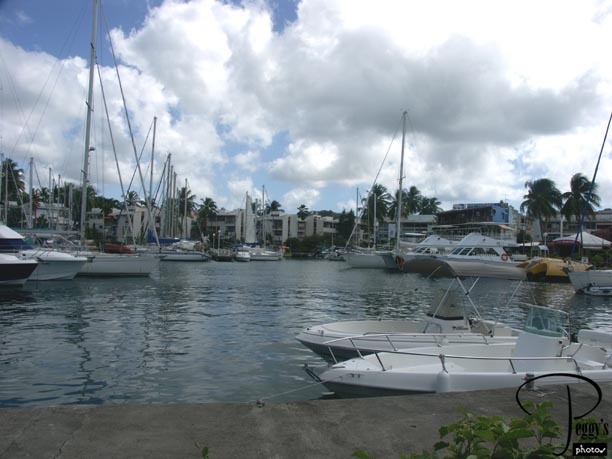
The hotel area. Many private boats here, as well as hotels and restaurants. There is also a beach. I did not find this area very interesting as it looked like harbors you can see often in other parts of the world. You can take a taxi from here to visit La Pagerie where there is a small museum housing momentos of Napoleon’s Josephine. I originally had planned to do this, but after this morning’s ride, I did not want to get into a Martinique taxi again.

Martinique
Martinique
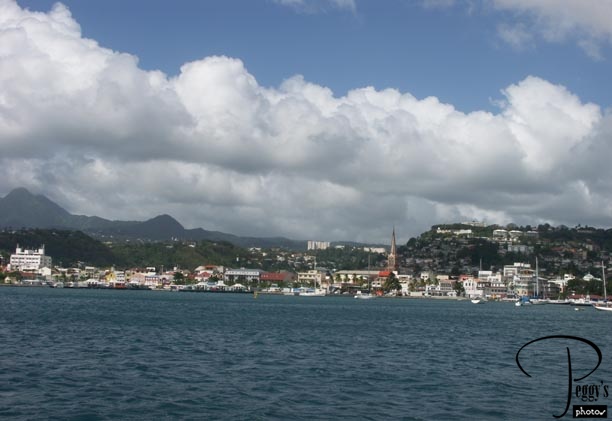
I walked around a bit and then got on a return ferry. A round trip on this ferry costs only 3 euros (that is, if you don’t misplace your return ticket stub and then have to pay a second time for the return ticket). View of Fort–de–France.

Martinique
Martinique
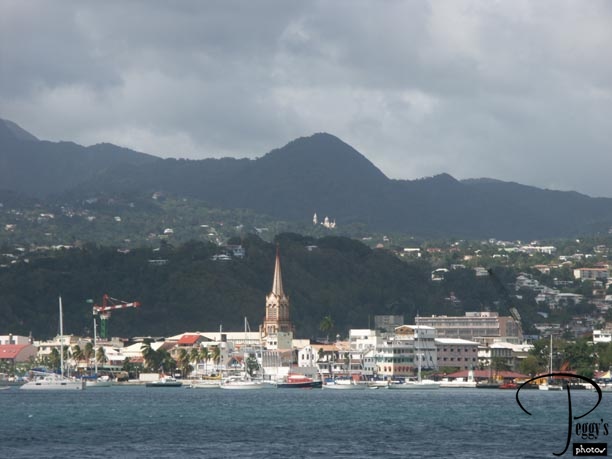
In this photo, you can see the steeple of La Cathedrale Saint–Louis in Fort–de–France, and on a hill overlooking the capital, the Sacre–Coeur de Batata Cathedral.

Martinique
Martinique

Another view of Fort–de–France. Two passengers on our ship told me later that they had been able to take a ferry to St. Pierre, the original capital of Martinique. On May 8 and 20, 1902, Mount Pelee, Martinique’s volcano, erupted and covered St. Pierre with ash. Thirty thousand of its residents died. In St. Pierre, there are ruins and a museum. It would have been an interesting trip.

Martinique
Martinique
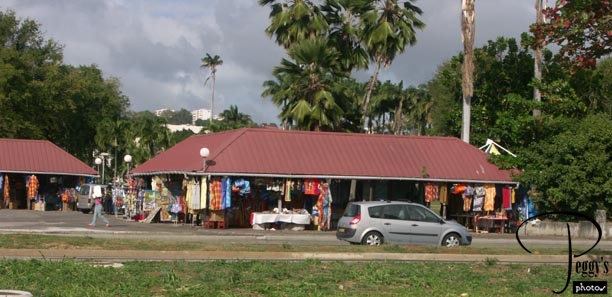
I found an Internet cafe in Fort–de–France and was able to e–mail my family. Then I started the long walk back to the ship (no, I was not going to take a taxi back!). Along the way, I went to look at the souvenir stands in La Savane (the park).

Martinique
Martinique
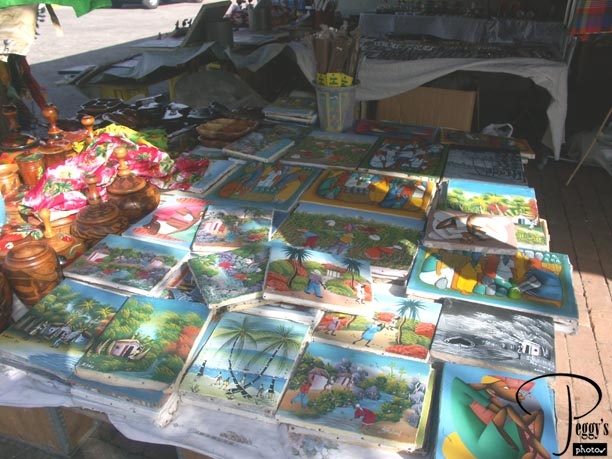
Art work for sale.

Martinique
Martinique
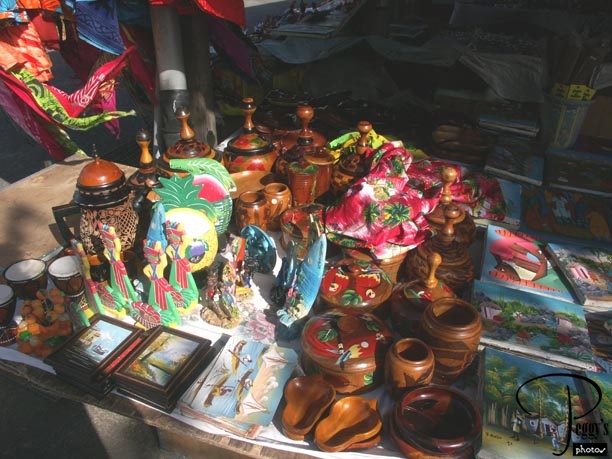
Various souvenirs.

Martinique
Martinique
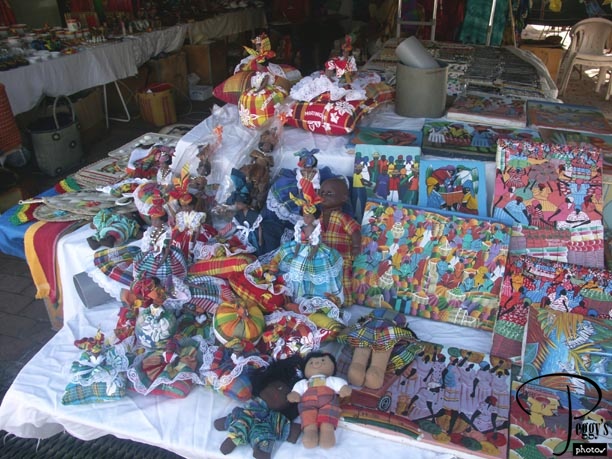
Dolls and artwork.

Martinique
Martinique
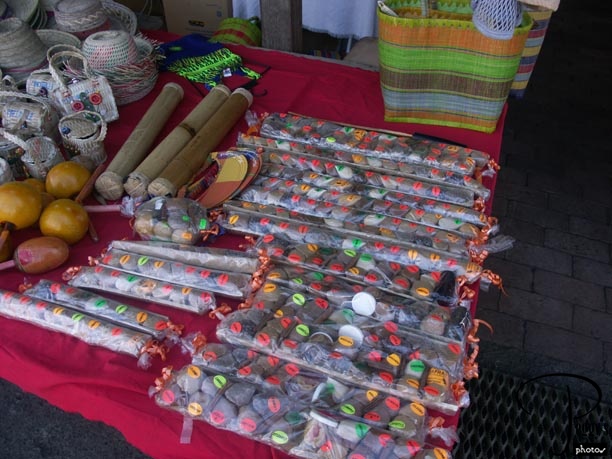
Spices.

Martinique
Martinique
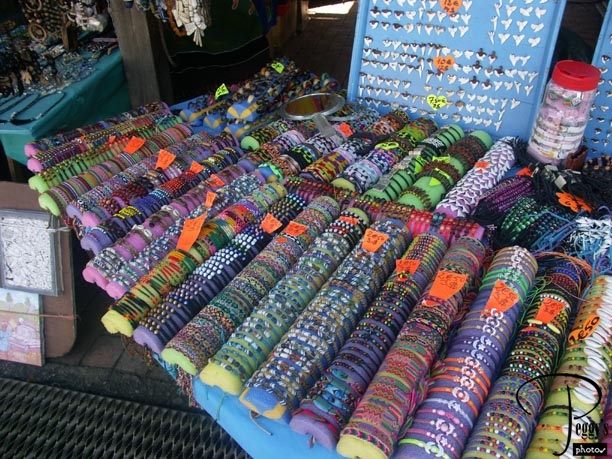
Bracelets.

Martinique
Martinique
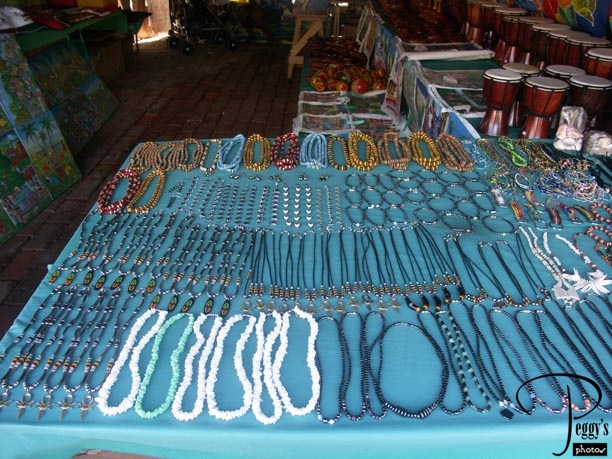
Necklaces.

Martinique
Martinique
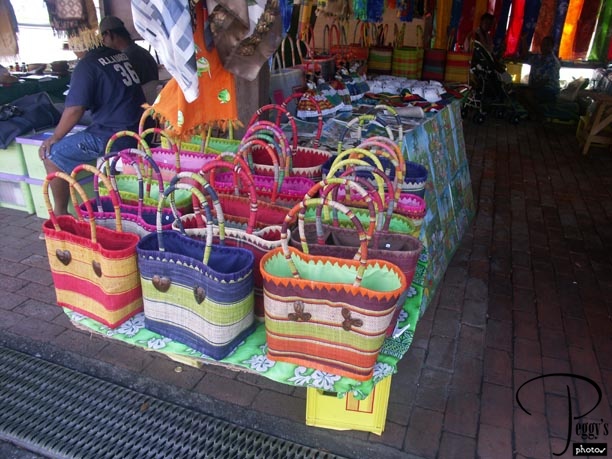
Handbags.

Martinique
Martinique
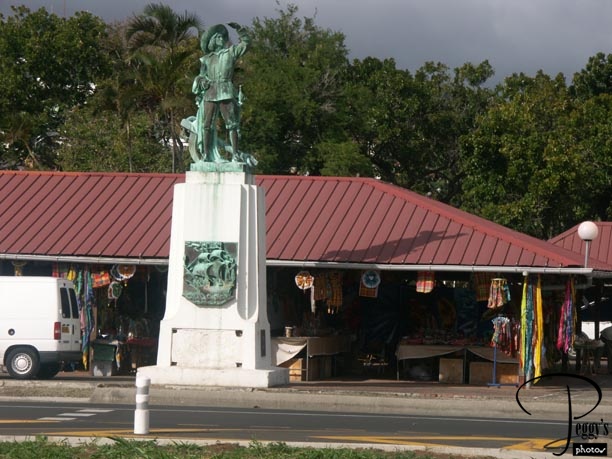
Christopher Columbus statue in front of the souvenir shops. Columbus landed at Martinique in 1502.

Martinique
Martinique
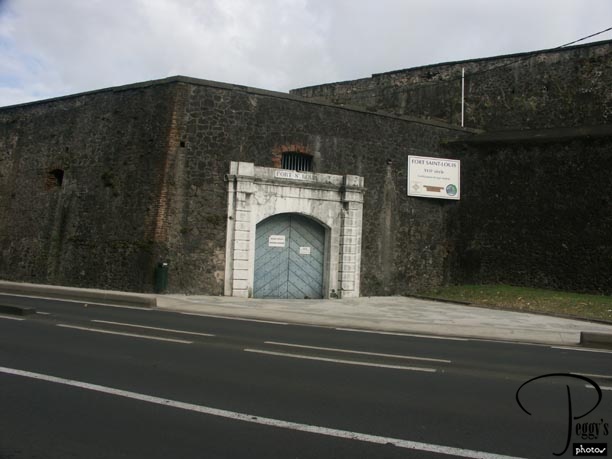
Walking back to the ship past Fort Saint–Louis.

Martinique
Martinique
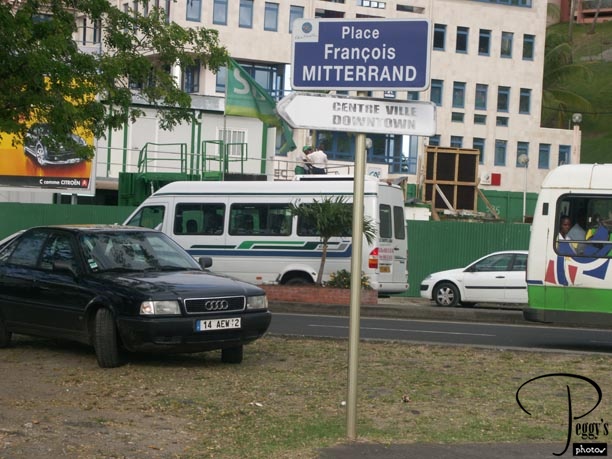
Passing Place Francois Mitterrand.

Martinique
Martinique
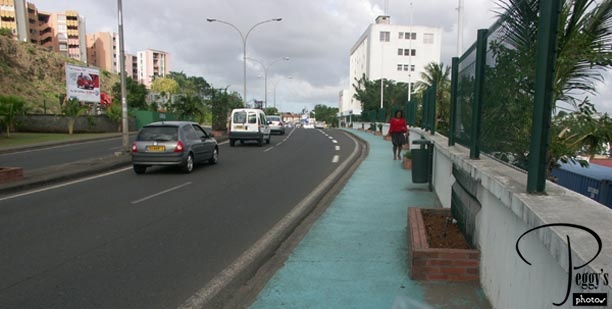
The walkway back to the cruise terminal is painted blue so you can find your way. One of the tours offered by our ship today was a Catamarin Tour (Sunset). I had signed up for it, but the tour was canceled. However, a special Valentine’s Day lobster dinner was being offered at the Sports Bar. I ordered it and it was delicious. But the day (night) had not yet ended. There was a Valentine Charity Raffle for ICROSS––International Community for the Relief of Starvation and Suffering. A raffle ticket cost $5 U.S. and to have a chance to win a prize (such as a bright orange easyCruise.com beach towel or four bottles of wine) you had to show up at the raffle––11 p.m.––because it was to be a media event––Sky TV was filming the raffle.
